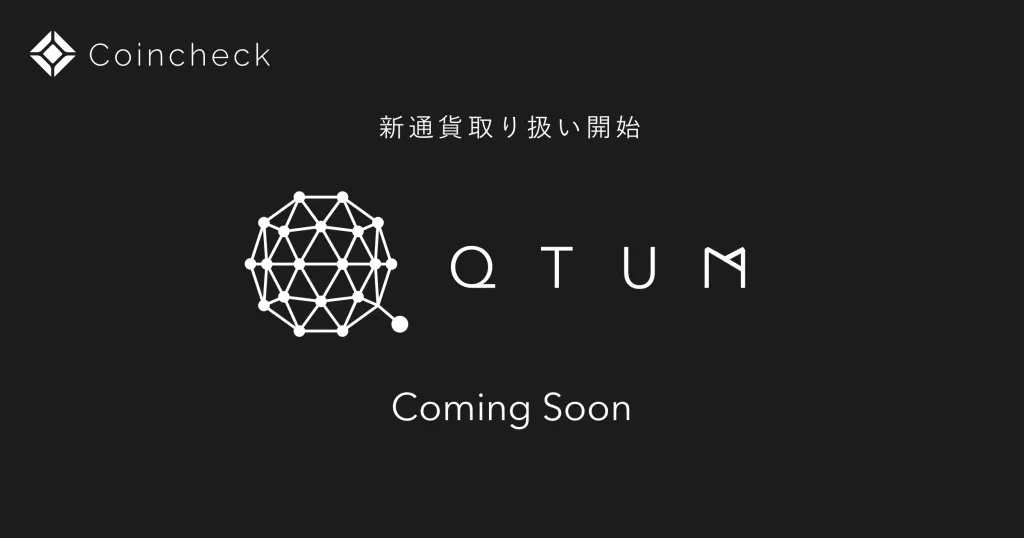Qtum trades on CoinCheck according to a notice issued by the company on the website. CoinCheck is one of the more popular exchanges in Japan. This has been seen as a good move from the community that supports the open source blockchain that is revolutionising Distributed App technology.
Qtum (pronounced Quantum) is an open-sourced value transfer platform which focuses on mobile decentralized apps or dapps. … Qtum is a hybrid of the two, a value transfer protocol which can also support dapps and smart contracts. It is being developed by the Qtum Foundation, based in Singapore
– INVESTINBLOCKCHAIN.COM
One of the primary goals of Qtum is to build the first UTXO-based smart-contract system with a proof-of-stake (PoS) [37] consensus model. The lattermeans the creator of the next block is chosen based on the held wealth in crypto-currency. Thus, blocks are usually forged, or minted instead of being mined, thereare block rewards in addition to transaction fees and forgers receive a percentageof ”interest” for the amount of funds they stake.Qtum is compatible with the Bitcoin- and Ethereum ecosystems and aims atproducing a variation of Bitcoin with Ethereum Virtual Machine (EVM) com-patibility. Note that differently to Ethereum, the Qtum EVM is constantly back-wards compatible.
Blockchain-enabled smart contracts that employ proof-of-stake validation for transactions, promise significant performance ad-vantages compared to proof-of-work solutions. For broad industry adop-tion, other important requirements must be met in addition. For exam-ple, stable backwards-compatible smart-contract systems must automate cross-organizational information-logistics orchestration with lite mobile wallets that support simple payment verification (SPV) techniques. The currently leading smart-contract solution Ethereum, uses computation-ally expensive proof-of-work validation, is expected to hard-fork multiple times in the future and requires downloading the entire blockchain. Con-sequently, Ethereum smart contracts have limited utility and lack formal semantics, which is a security issue. This whitepaper fills the gap in the state of the art by presenting the Qtum smart-contract framework that aims for socio technical application suitability, the adoption of formal-semantics language expressiveness, and the provision of smart-contract template libraries for rapid best-practice industry deployment. We dis-cuss the Qtum utility advantages compared to the Ethereum alternatives and present Qtum smart-contract future development plans for industry-cases applications.
From the Notice
CoinCheck Co., Ltd. (Headquarters: Shibuya-ku, Tokyo; Representative Director: Satoshi Hasuo; hereinafter referred to as “the Company”) has announced that it will begin handling Qtum (QTUM).
As a result, we will handle 12 types of virtual currencies.
Details on handling Qtum
Currency name: Qtum
Currency code: QTUM
Handling start date: The handling start date will be announced again.
Applicable services:
・ Coincheck (WEB) and remittance / receipt / purchase / sale in Coincheck application
・ Coincheck lending virtual currency (WEB)
Currency features:
Qtum is a cryptocurrency developed in December 2016 by the Qtum Foundation’s open source blockchain project. With its unique technology, it is possible to implement the smart contract of Ethereum while adopting the highly secure balance check method used in Bitcoin, so it is said that it is a virtual currency that multiplies the advantages of Bitcoin and Ethereum I am.
It has functions as a decentralized application platform (Dapps) as well as payment, and has entered into partnerships with Google and Amazon Web Services (AWS) to build a Dapps development environment.



